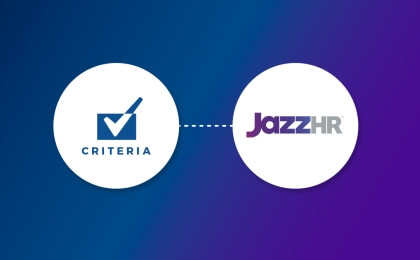In my last post I compared a speech given by Malcolm Gladwell in the spring to the content of his new book Outliers, and wondered what had happened to the employee selection angle he had promised in the speech. Well, no sooner did my post go live than my New Yorker magazine showed up in my mailbox with the answer — this week's cover story is an article by Gladwell entitled "Most Likely to Succeed: How do we hire when we don't know who's right for the job?"
In the article, the author describes the problems inherent in evaluating talent and predicting job performance, and cites three examples of jobs where he sees this as a problem: pro football quarterbacks, teachers, and financial analysts. I'm going to focus here just on the issue of predicting success for NFL quarterbacks.
Gladwell describes the challenges faced by NFL scouts who evaluate college quarterbacks and relates the examples of some prominent "can't miss" prospects who became NFL busts. Gladwell is at his most comfortable spinning an anecdote about a single subject, and he structures this article around the story of Chase Daniel of Missouri. But somehow in trying to tell the story of how difficult it is for NFL teams to decide who to draft, Gladwell makes the ludicrous statement that the entire NFL selection process is fraught with error. He concludes that "there are certain jobs where almost nothing you can learn about candidates before they start predicts how they'll do once they're hired."
In fact, when one looks at the NFL's record of predicting quarterback success, Gladwell's conclusion is on very shaky ground. The collective opinion of an NFL player's prospects are reflected in the order in which players are drafted by NFL teams. It turns out that draft order is a very accurate predictor of subsequent statistical performance for quarterbacks.
To take the most recent decade as an example, when one looks at all the quarterbacks (67 in all) who were drafted by NFL teams from 2000 to 2004, and compares their overall draft position to their statistics in their first four years in the league, it is clear that on balance NFL teams are very accurate in predicting statistical success in the NFL. Organizational psychologists measure the predictive validity of an employee selection technique by quantifying the strength of the relationship between selection measure and job performance; the strength of the association is expressed as a correlation coefficient. For the whole group, the correlation between draft order and passing yardage is very strong (-.73 — the coefficient is negative because the higher a player is drafted, the lower their draft rank). For those concerned that a measure of total productivity such as passing yardage is somewhat correlated with opportunity, we can consider passer efficiency, as measured by QB rating. Only 51 of the 67 quarterbacks drafted attempted a pass in the NFL, a necessary requirement for calculating a QB rating: for this group, there was a -.34 correlation between draft position and QB rating. This is still a strong association and shows a clear, statistically significant correlation between draft order and future statistical success in the NFL.
Like the fans of the teams that drafted them, Gladwell has let the Ryan Leafs (a high draft choice that flopped) and the Tom Bradys (a low draft choice who became a superstar) of the world influence his thinking. These are outliers, a concept with which Gladwell should be familiar given the title of his latest book. (If you take Brady out of the mix the correlations strengthen considerably!) It turns out, in fact, that on average the NFL draft process is highly accurate at predicting QB success, and the draft is based entirely on things that Gladwell dismisses as useless--college performance, scouting, performance in the NFL combine.
If Gladwell had considered any quantitative measures at all relating to the efficacy of the draft he'd have no basis for his conclusion that "a prediction, in a field where prediction is not possible, is nothing but a prejudice." Gladwell, we fear, gets swept up in his own storytelling, and in the process badly misconstrues the alleged "quarterback problem."
Gladwell's approach reminds me of a challenge we face every day in discussing our pre-employment testing services with customers and prospective clients. When evaluating a selection instrument, there's a strong tendency to take an anecdotal approach and fixate on the outlier for whom the selection instrument was not an accurate predictor. For example, when a sales manager administers one of our tests to a few dozen existing employees, we'll often hear about the one high performer who didn't fare well on the test. Anecdotes are powerful, and it is sometimes difficult to persuade the manager to focus on how well the assessment predicts performance across the whole group. No selection measure is perfect, and we must be careful when evaluating the efficacy of our selection processes not to follow Gladwell's lead and let anecdotal evidence trump more rigorous analysis.





